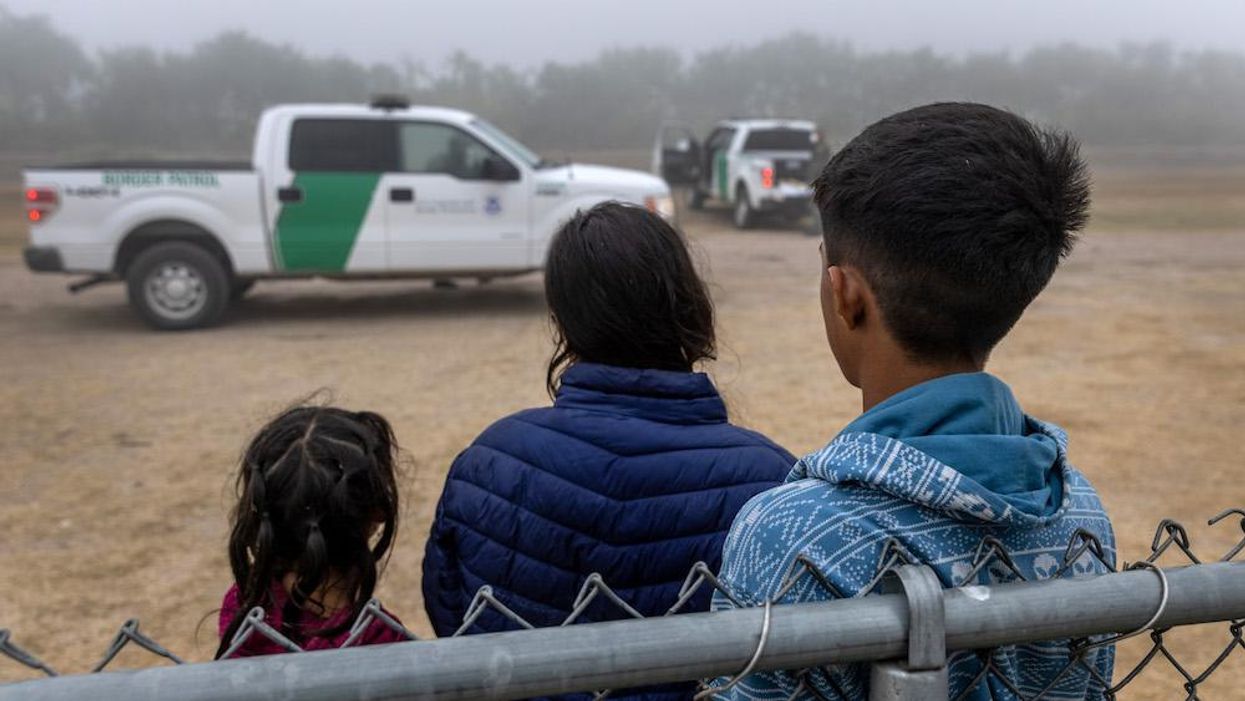
Photo by John Moore/Getty Images

The Biden administration continues to face massive criticism — from both Republicans and Democrats — for its botched handling of the illegal immigration crisis at the southern U.S. border, where hundreds of thousands of illegal aliens have flooded into the country since President Joe Biden's inauguration.
One of the many criticisms against the White House's approach to the issue has been its insistence on releasing illegal aliens in to the country after apprehension. Part of the administration's plan includes placing "unaccompanied minors" with sponsors in the U.S. These are children whom the government is supposed to keep tabs on — for their safety and for the sake of the immigration system.
But a new report from Axios this week revealed that the feds have failed miserably in keeping track of these minors: The government has lost contact with at least a third of them.
The numbers of illegal aliens slipping into the U.S. has spiked in recent months. In July alone, more than 212,000 migrants were detained along the Mexico border, the Washington Post reported last month. And that figure does not include the unknown number of illegals who successfully evaded authorities.
Of the migrants detained in July, about 19,000 were unaccompanied minors, the Post said. This is in addition to the 65,000 unaccompanied children detained the first five months of 2021.
With the surge in child migrants, the government has opted to place thousands of these kids with relatives or other pre-approved sponsors. The Department of Health and Human Services' Office of Refugee Resettlement has a published order of preference for sponsors:
ORR releases children to a sponsor in the following order of preference: parent; legal guardian; an adult relative (brother, sister, aunt, uncle, grandparent or first cousin); an adult individual or entity designated by the parent or legal guardian (through a signed declaration or other document that ORR determines is sufficient to establish the signatory's parental/guardian relationship); a licensed program willing to accept legal custody; or an adult individual or entity seeking custody when it appears that there is no other likely alternative to long term ORR care and custody.
The ORR requires that care providers who place children with sponsors are queried to "conduct a Safety and Well Being Follow Up Call with an unaccompanied alien child and his or her sponsor 30 days after the release date" in order to make sure the "child is still residing with the sponsor, is enrolled in or attending school, is aware of upcoming court dates, and is safe."
The providers are required to document the calls, including whether or not the provider is able to contact the sponsor or the child.
Axios filed a Freedom of Information Act request for the data after the government refused to share information about whether it had actually been making the required 30-day follow-up calls.
Turns out the situation is pretty grim.
According to the data culled by Axios, iin the first five months of 2021, care providers made 14,600 calls to check in with the minors released from HHS shelters to approved sponsors. In 4,890 of those cases — 33% — providers were not able to reach the child or the sponsor.
The share of unsuccessful calls grew from 26% in January to 37% in May, Axios said.
Not a great look for the Biden admin when it comes to caring for immigrant kids:pic.twitter.com/EBKx4r7is3— Chris Field (@Chris Field) 1630687491
As the outlet noted, the summer migration surge "suggests the problem of losing track of released children could be compounded in the months to come."
Making matters even worse, the data Axios received indicated that the government has not been calling as frequently as it is required to.
"Between President Biden's inauguration and the end of May, HHS discharged 32,000 children and teens — but the government placed fewer than 15,000 follow-up calls, according to the FOIA response," Axios said, adding, "In both March and April, the number of kids discharged was twice as high as the number of check-in calls the following month — indicating that half of the released kids might not have gotten a 30-day call, according to public agency data."